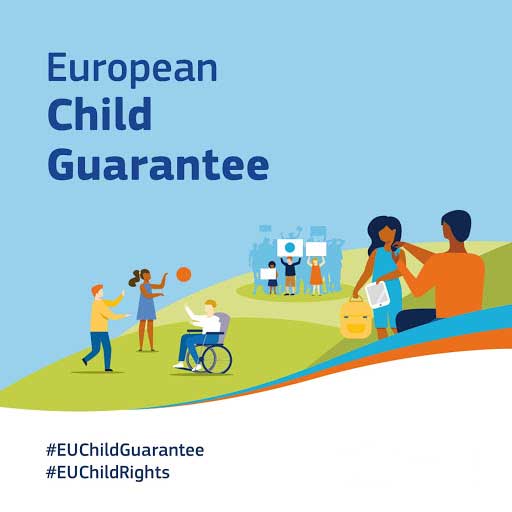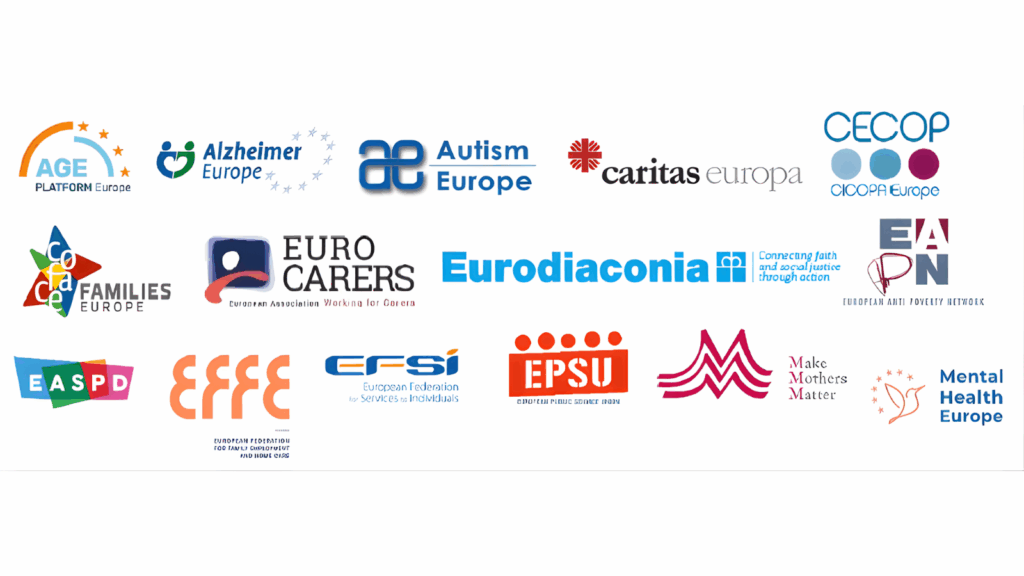COFACE Families Europe welcomes today’s decision of the EPSCO Council to introduce a European Child Guarantee, based on the proposal of the European Commission on 24th March this year. With this decision, set in the framework of the newly adopted EU Strategy on the Rights of the Child and the Action Plan on the European Pillar of Social Rights, the EU Member States commit themselves to an intensive fight against child poverty and exclusion and for the full participation of children in society.
___
The European Child Guarantee aims to support children in poverty and at risk of poverty and social exclusion in the EU, helping them to access key services for their health and well-being. This includes access to free healthcare, inclusive education (including digital educational tools) and school based activities, early childhood and care facilities, and effective access to adequate housing and suitable and healthy nutrition. The implementation of the Child Guarantee must be linked with wider enabling social policy frameworks, notably with the European Pillar of Social Rights and the transposition of the EU Work-Life Balance Directive.
COFACE believes the Child Guarantee offers an opportunity to strengthen the fight against child and family poverty and social exclusion in Europe. We now call on all governments to develop strong national action plans over the next nine months in collaboration with all relevant stakeholders, covering all key dimensions in the Child Guarantee recommendation and based on a two- (and multi-generation) approach with a strong family support stream, acknowledging the interrelated well-being of children and their families.
Family organisations in the COFACE network will support this initiative and stand ready to join their expertise to the process at national level, supporting the Child Guarantee National Coordinators in their role to coordinate and monitor the implementation of the Recommendation in their country. This will require an efficient system with intergovernmental coordination at national and sub-national levels to ensure effective and lasting change for children and their families.
_________
Supporting documents:
- COFACE Child Compass 2030
- The Child Guarantee: A tool to tackle family poverty? – Event overview, September 2020
- European Commission proposal of March 2021
- Council Recommendation establishing a European Child Guarantee
Also available in: BG CS DA DE EL ES ET FI FR HR HU IT LT LV MT NL PL PT RO SK SL SV
_________
What is the European Child Guarantee?
1) The new instrument – a Council recommendation – offers guidance on how to develop action plans focusing on children in vulnerable situations, while also allowing Member States the flexibility to design and implement measures, according to their national practices and needs.
2) It is set within a wider EU Child Rights Strategy and the European Pillar of Social Rights, and the Child Guarantee national action plans must be fully in line with the UN Convention on the Rights of the Child and the UN Convention on the Rights of Persons with Disabilities.
3) The Commission will monitor its implementation through a mix of tools. Its monitoring and implementation will be explicitly linked to the European Pillar of Social Rights 2030 target to reduce by at least 15 million the number of people at risk of poverty or social exclusion by 2030, including at least 5 million children.
4) This Council Recommendation encourages Member States to address child social exclusion as a matter of priority. Paragraphs 4 and 5 of the Recommendation invite Member States to guarantee for children in need effective and free access to early childhood education and care, healthcare, as well as effective access to healthy nutrition and adequate housing.
5) The proposal stresses that although ensuring access to the services is an important part of tackling child social exclusion, it must be set within a broader approach and within an enabling social policy framework.
6) The Member States now have 9 months to develop and adopt national action plans on the Child Guarantee with a 2030 timeframe and aligned on the achievement of the Sustainable Development Goals.





